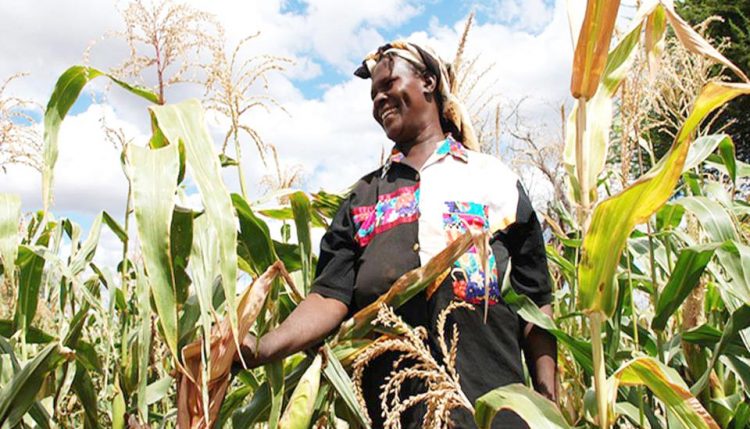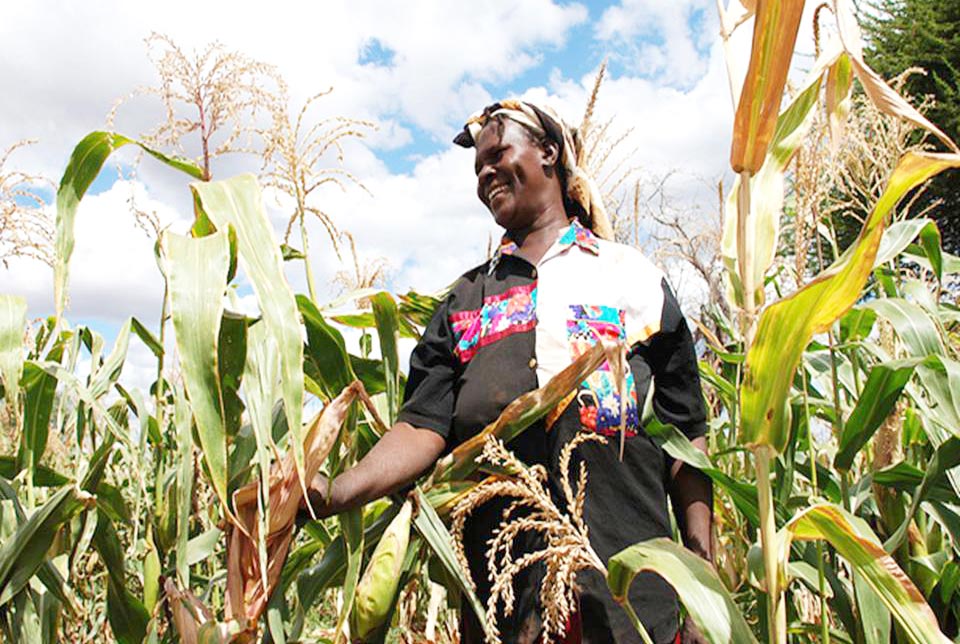
R4D Special: Has agriculture research failed to deliver on the fight to reduce poverty in Africa?
Over 50 years of agriculture research in Africa has not delivered the expected results in terms of self-sufficiency in food production and reduced poverty in many countries in the continent.
It is now evident that developing and delivering new technologies and their adoption without the necessary public policy instruments to accompany them will not lead to self-sufficiency in food production and reduction of poverty.
This was the focus of a seminar presented by Shiferaw Feleke, IITA Agricultural Economist at IITA East Africa hub in Dar es Salaam, Tanzania, titled ‘Why is poverty still persistent in Africa despite many years of agricultural research?’
[su_quote]“Between 1990 and 2015, while many countries in the world reduced extreme poverty significantly, sub-Saharan Africa made the least progress at 28%. Today, nearly a half of the region’s population, 41%, is poor, the highest percentage in the world,” said Feleke.[/su_quote]
[su_quote]“Results from adoption studies conducted in Africa, show that over 70% of wheat grown was of new varieties and same in 45% maize, 20% rice, and 15% sorghum by 2005. In Nigeria by 2015, over 66% of cassava grown was improved varieties. Yet, every year, the continent spends over US$35 billion on food imports. Poverty especially in the rural areas was still deeply entrenched,” he said.[/su_quote]
So why hasn’t agricultural research helped the poor?
According to Feleke, one of the problems with agricultural research is that it has focused more on improving efficiency in production and not equity. The major goal of agricultural research has been to increase production and therefore it has focused more on highly productive areas. Yet the majority of the poor are in marginalized areas.
The envisaged benefits from growth in the agriculture sector in the trickle-down theory that the poor would benefit through lower food prices and increased wage and employment opportunities have not come about.
Agricultural research can only benefit the poor if they are adopters of the technology. However, in the dynamics of adoption, the poor with their limited resources adopt late in the cycle. Yet increased adoption and yield depress prices, as domestic prices are responsive to local supply.
Complex nature of poverty in Africa
Another challenge says Shiferaw is the very nature of poverty in Africa. Africa’s poverty level starts way further down the poverty line and therefore cannot be lifted by technology alone. Technology is only one of the instruments. The rapid population growth further compounds the problem—the rate at which poverty is falling is less than the rate at which the population is rising.
In addition, the fact that agricultural research funding in Africa is very low has stifled the actual level of poverty reduction.
[su_quote]“While research has shown that potential impacts of agricultural research as measured by poverty elasticity in sub-Saharan Africa is at least 30% greater than in Asia, actual poverty reduction has been greater in Asia,” he said.[/su_quote]
The measurement of impact of agricultural research on poverty reduction has been very difficult. The technology dissemination process has also made the measurement of impact difficult—the farmers either self-select themselves into adoption or are selected by extension personnel, making it difficult to isolate the poverty-reducing impacts of agricultural research.
Good news – Agricultural research is still on the agenda
The good news is that many players have realized that these challenges can be addressed through public policy, and increased investment in research and development. There is still opportunity for agricultural research to refocus its approach with the renewed interest in agriculture as an engine of growth and poverty reduction in the continent from mid-2000s following the tightening of the global food markets. This culminated in the 2006 Comprehensive Africa Agriculture Development Program (CAADP) declaration that among others, calls for increased investment in the agriculture sector.
IITA as well, is making strategic adjustments in its research agenda to ensure its research delivers impact on transformation of agriculture in Africa.
[su_quote]“We are moving beyond reduction of poverty and hunger to transforming agriculture. We are now focusing on delivery of proven technologies with a balanced approach of efficiency and equity but bearing in mind technology alone will not be enough to lift poor people out of poverty,” he said.[/su_quote]

